In travel photography, and mostly in Asia, we tend to focus our photography a lot on people. But portraits can look very similar if taken with the same angle. It works fine of course, but I personally feel the need to go beyond the traditional close up portrait and produce some more original work.
While environmental portraiture allows us to be more creative using elements of the surrounding, the options for close up portraits are more narrow. Plus, they do lack originality. After all, close up portraits of cute kids or old people in Asia are already all over the web.
But doing something different for the sake of doing something different will not bring you anywhere. You need to apply your vision, analyze the scene, and learn from it to find the inspiration.
Let’s see what tools we could use to create more original and dramatic portraits:
Use the elements of your subject itself
A hat, an earring, a necklace, some lines of the neck, etc… may lead you to compose your portrait an original way. Including these elements, or deciding to exclude them, will help reinforce the story you’re trying to tell. Remember? Show less to tell more.
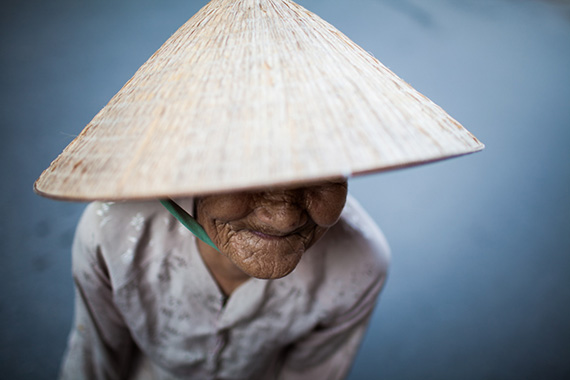
Use elements from your subject.
These other elements on your subject will help you frame it a different way. Focusing on them, placing some of these elements as “main” subjects instead of your subject’s face, will eventually lead to different framing. Also, while doing portraits we tend to be very close to our subjects. I recommend everyone traveling in the area drop their long lens and get closer (I shoot mostly with my 50mm lens) for more creativity and better results. That means that our depth of field will be much more shallow (mostly when using primes), and this can help us isolate certain elements around the subject, telling a different story.
By looking for and finding these other elements, placing them in strategic locations (mostly using the rule of thirds to keep a balance), you will create more striking and original portraits.
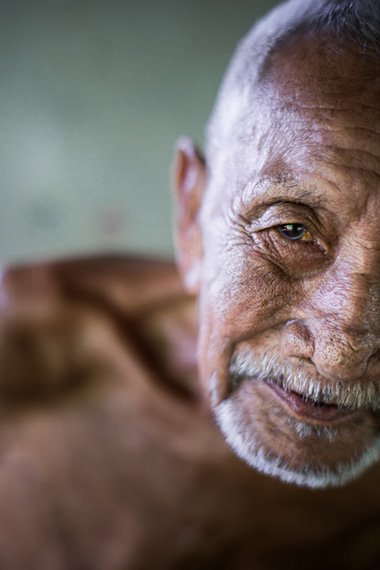
Use creative cropping to highlight features.
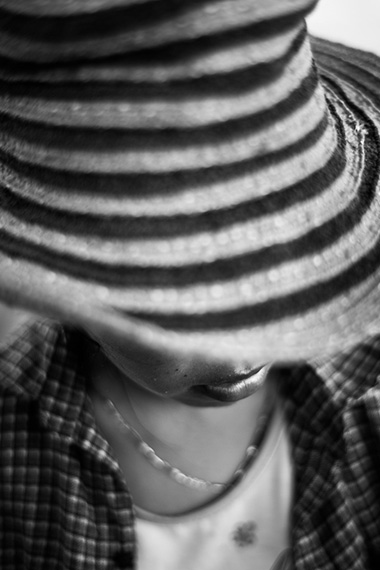
Find interesting aspects of the person’s clothing.
Use your background / foreground
A very beautiful background or foreground will help you to think outside the box. If you want to include some of this background or foreground, it may not always allow you to follow the “rules”. Then don’t! These rules are meant to be broken, so give it a try and see what you get. Also, the background will help you to change your angle of approach. Because the floor is very interesting, or because the rest is very messy, you may shoot looking down at your subject.
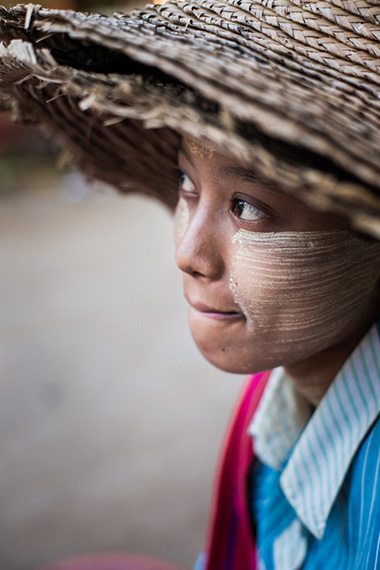
Change your angle to eliminate distractions.
In this example, the green plastic chair of this Burmese train did not extend to the right side of the image. Because I only wanted to keep this simple green background, as a good contrast to the red color of the girl’s clothes, it forced me to place the girl in the top right corner, looking into the frame. I did receive a negative notification from the photography rules police, but I think I will be all right for this time.
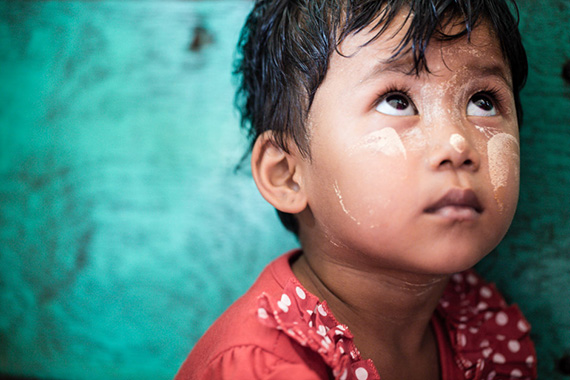
Include colorful backgrounds.
Use your subject’s body language
When being so close to your subject for a portrait, it is more difficult to find elements that will create a direction to lead the eyes. Portraits tend to be centered and very symmetrical, and being so close there are no elements of the background / foreground we could use.
To recreate a dynamic line or shape, it is useful to use the subject’s body language. The eyes looking on the side, some hair falling on one corner, an angled hat, will help re create dynamic and directional lines. Sometimes, tilting the camera a little bit will help to give more dynamism into straight lines, making them diagonals.
But be aware of one thing: these little body movements are often not predictable and can happen very fast (sometimes only 1/10 of a second). That means that when shooting close up portraits, you do have to shoot, quite a lot. It is not rare that for a close up portraits I shoot 25 frames using the same (or almost) composition, waiting for the time my subject will look away or tilt their head (on top of trying to have my main element in focus… damn manual focus lens!).
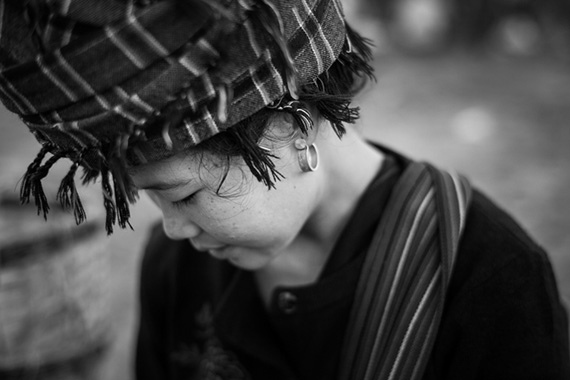
Capture your subject’s body language.
Don’t be shy about using a macro lens
As I often say, the best and easiest way to keep a photo simple and to fill the frame is to get closer. The macro lens is simply the best tool to do that. As it can create an extremely shallow depth of field, you can isolate very small elements of your subject and also tell a different story. Also, don’t be scared to shoot using wide apertures, it will simplify everything and can sometimes help getting rid of a messy background.
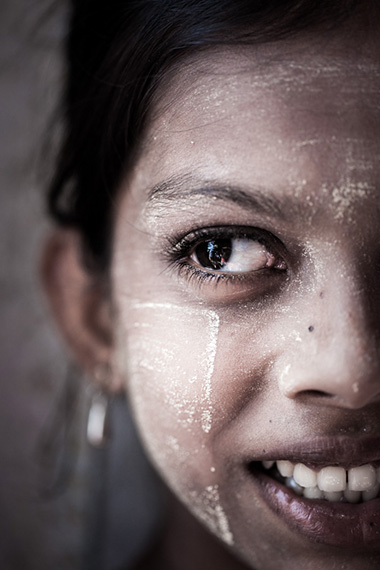
Use a macro lens.
Remember: a portrait is not necessarily a face
It is very interesting to tell stories capturing only parts of your subject: hands, feet, etc… as long as they have elements of interest.
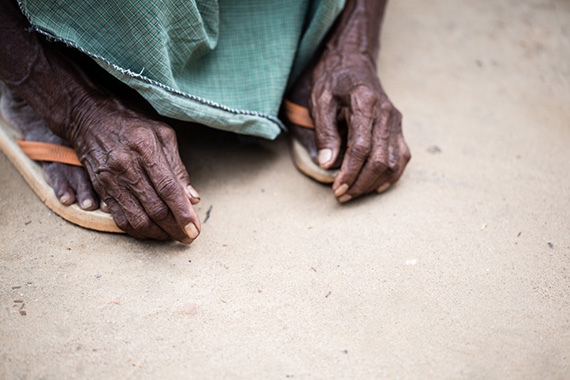
You don’t always have to include a face.
And of course, do not forget to shoot the light
Shooting the light, and only the light, will force you to look at things a different way, only including the elements in the light and removing the rest. So if the light only cover half of your subject’s face, why not only shooting this half?
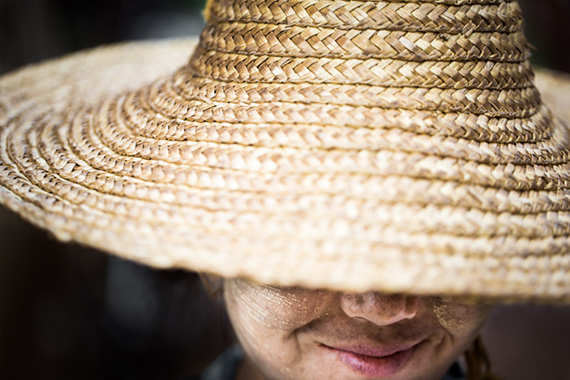
The soft light bouncing on the floor gave her face a beautiful glow.
So get your camera, go outside and shoot. Or no, better: sell your big long lens, and buy yourself a plane ticket to South East Asia. Then, shoot. I am here waiting for you.
About the Author:
I am Etienne Bossot and I am delighted to take you on an amazing journey through stunning locations in Southeast Asia while sharing my passion for photography. For the past four years I have been teaching thousands of people at all photographic levels. I am also a commercial and wedding photographer in Southeast Asia.
Like This Article?
Don't Miss The Next One!
Join over 100,000 photographers of all experience levels who receive our free photography tips and articles to stay current:




Leave a Reply